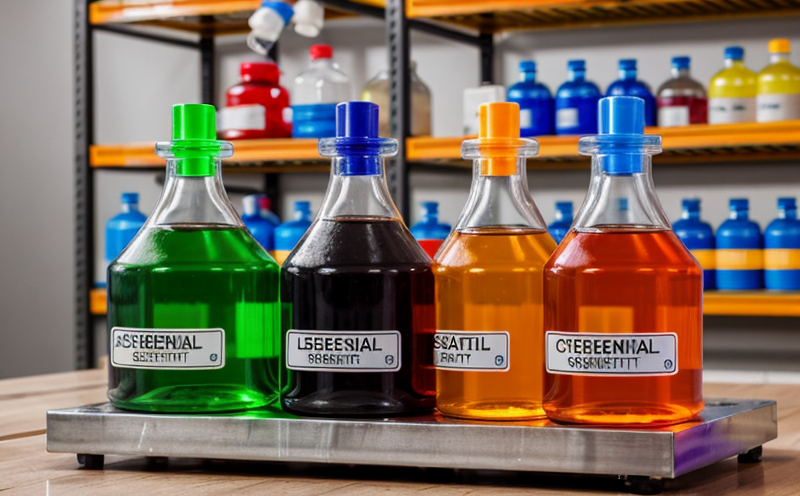Antimony Content Testing in Consumer Products
In today’s competitive consumer products market, ensuring that items are safe and compliant with international standards is paramount. Antimony content testing plays a critical role in identifying the presence of antimony compounds within various consumer goods to ensure they meet stringent safety regulations. This service helps protect consumers from harmful substances while maintaining brand integrity.
Antimony, a chemical element with the symbol Sb and atomic number 51, is often found in trace amounts in certain materials used for manufacturing consumer products. However, excessive levels of antimony can be toxic when ingested or absorbed through skin contact, posing serious health risks such as kidney damage, respiratory issues, and neurological disorders.
Our testing service employs advanced analytical techniques to accurately measure antimony content across different types of materials commonly used in consumer products like textiles, electronics, plastics, and coatings. These tests are crucial for manufacturers to comply with regulations set by organizations such as the Consumer Product Safety Commission (CPSC), European Union’s REACH Directive, and other national standards.
For example, under the Restriction of Hazardous Substances (RoHS) directive, antimony compounds may be restricted in certain applications due to their potential toxicity. Our laboratory uses precision analytical methods like Inductively Coupled Plasma Mass Spectrometry (ICP-MS), which can detect trace elements as low as parts per billion (ppb). This level of accuracy ensures that products meet not only current but also future regulatory requirements.
The process begins with thorough sample preparation, ensuring uniformity and representativeness. Depending on the material type, this might involve grinding, washing, or dissolution steps followed by digestion processes to release any bound antimony. Once prepared, the samples undergo rigorous analysis using state-of-the-art instrumentation capable of providing precise quantitative results.
Our team of experts ensures that all tests adhere strictly to recognized international standards such as ISO 17025 for proficiency and accuracy. The findings are then summarized in detailed reports that provide actionable insights regarding the antimony content levels detected within each product sample analyzed.
In summary, our Antimony Content Testing service offers comprehensive support to manufacturers seeking assurance about their products' compliance with global health and safety standards. By partnering with us early in the development phase or during quality control checks, businesses can mitigate risks associated with non-compliance while enhancing their reputation for producing safe goods.
Benefits
- Ensures compliance with international safety regulations and standards.
- Reduces the risk of product recalls due to non-compliance issues.
- Promotes brand reputation by demonstrating commitment to consumer welfare.
- Aids in early identification of potential hazards allowing for timely corrective actions.
The benefits extend beyond mere regulatory compliance; they also contribute significantly towards building trust among consumers and stakeholders. By proactively addressing concerns related to antimony content, manufacturers can foster a safer environment while maintaining market competitiveness.
International Acceptance and Recognition
- ISO/IEC 17025: Our laboratory is accredited to this standard, ensuring our testing methods are precise and reliable.
- RoHS Directive: Compliance with this directive is mandatory for many electronic products sold within the European Union. Our tests help ensure that these products do not contain excessive levels of antimony.
- CPSIA: For manufacturers targeting the U.S. market, meeting CPSIA requirements regarding antimony content in children’s toys and other products is essential to avoid penalties.
- JIS: Japan Industrial Standards are widely recognized globally; our tests align with these standards ensuring compliance for Asian markets.
Our rigorous adherence to international standards ensures that the results from our testing service are universally accepted and respected. This global recognition enhances confidence in the reliability of your product’s safety profile, facilitating smoother entry into diverse markets worldwide.
Environmental and Sustainability Contributions
The responsible use of materials containing antimony is crucial not only for human health but also for environmental sustainability. By identifying and managing the presence of antimony in consumer products, we contribute to minimizing pollution risks associated with improper disposal or release into ecosystems.
Our testing service supports environmentally conscious manufacturing practices by helping manufacturers choose safer alternatives when possible. This proactive approach can lead to reduced waste generation and lower environmental impact throughout the product lifecycle. Additionally, it promotes circular economy principles by encouraging more sustainable sourcing and processing of raw materials.





